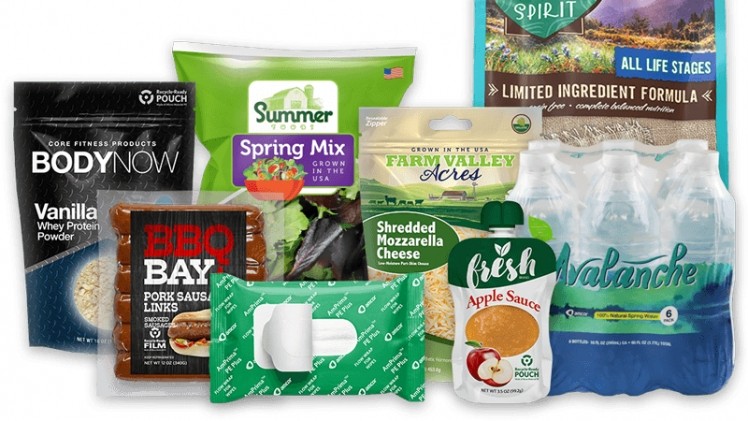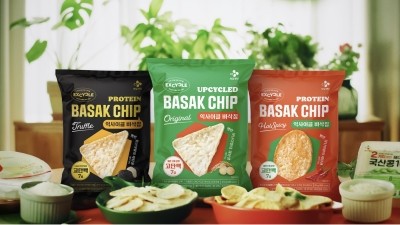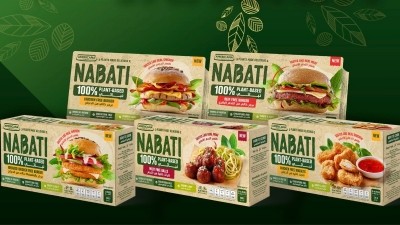Recycle-ready and lifestyle-compatible: Changing consumer demands driving packaging innovation in APAC

According to an Amcor survey involving 12,000 consumers in six countries, 76% of respondents said that they want to recycle more than they currently do.
“The trends that we are seeing reflect consumers’ changing priorities and lifestyles. From format substitution (rigid to flexible) to recycle-ready packaging and those that use less materials, we are working to provide responsible, sustainable and high-performance packaging that consumers are looking for,” Dr Lu Qiang, R&D Vice President of Amcor Flexibles Asia Pacific, told FoodNavigator-Asia.
At the same time, the firm has observed a preference for product packaging that is easy and convenient to use, such as portable squeeze pouches and resealable packs, due to modern on-the-go lifestyles.
To stand out on the shelves, brands are increasingly leaning towards customised packaging to “build relationships and drive loyalty”. These include sensory packaging, digital printing, and unique finishes.
Furthermore, health and hygiene remain an important concern for consumers.
“Packaging and labels that communicate honestly about product ingredients help to build trust with consumers — for example, transparent packaging that show freshness of the item,” Dr Lu explained.
Blazing the trail
Recognising the demand, Amcor has invested US$100m to set up a new flexible packaging plant in Huizhou, China.
The 590,000 square feet facility is said to have the largest production capacity in the country, and will play a major role in the production of flexible packaging for food and personal care products.
“The new plant is the latest addition to our manufacturing network in Asia-Pacific (APAC), where we will continue to invest in building capabilities and capacity to fulfil growing demand. That way, we can bring Amcor’s innovations and expertise closer to our customers in the region,” said Dr Lu.
The plant boasts a number of firsts in China, including the first automated packaging production line. This, along with high-speed printing presses, laminators and bag-making machines, would bring double-digit reduction in manufacturing cycle time.
It is also the first in the Chinese flexible packaging industry to deploy a smart production and operation system, which includes smart laser scanners, light curtains, high-standard machine guarding, and multiple quality-control points.
As part of Amcor’s efforts to minimise adverse environmental impact, the new plant is equipped with several sustainability features, such as regenerative thermal oxidizers (RTO) to reduce harmful emissions, as well as energy-saving, heat-recovery, low-power consumption and rainwater-harvesting systems.
In addition, the facility houses three labs with innovative testing and analytical capabilities.
Specifically, they are the Workshop lab to test semi-finished and finished products, the Central lab to test raw materials and conduct product development research, and the Microbiological testing lab to detect and control bacteria, and monitor environmental hygiene.
These three labs leverage expertise and technologies from the Amcor Asia Pacific Innovation Center, a regional R&D hub and member of the firm’s global innovation network, located in Jiangyin, China.
“This not only enables us to accelerate the development of responsible packaging solutions and commercialisation of new products, but also ensure they meet the strict quality standards that consumers demand,” Dr Lu added.
Target 2025
In 2018, Amcor pledged to make all its packaging products recyclable or reusable by 2025.
To achieve this goal, the firm puts about US$100m every year into the development of sustainable products.
“We have a coordinated global R&D effort to develop sustainable products utilising materials such as mono-layer plastic films, paper, post-consumer recycled plastics, and biodegradable materials,” Dr Lu shared.
The firm’s range of proprietary recycle-ready products include AmPrima’s dry and liquid pouches, bread bags and lidding film for trays, and AmFiber’s paper-based packaging for baked goods, fresh fruit and vegetables, meats and seafood, snacks and more.
Another portfolio highlight is the AmLite HeatFlex Recycle-Ready, which is claimed to be the world’s first recyclable packaging that possesses “excellent barrier properties for high performance” under retort and heat treatment to provide long shelf life.
This packaging is typically used for ready meals, baby nutrition products, beverages, and cooking aids.
“We aim to bring these products to our customers in APAC by transferring the technology and manufacturing them in the region itself,” Dr Lu reiterated.















